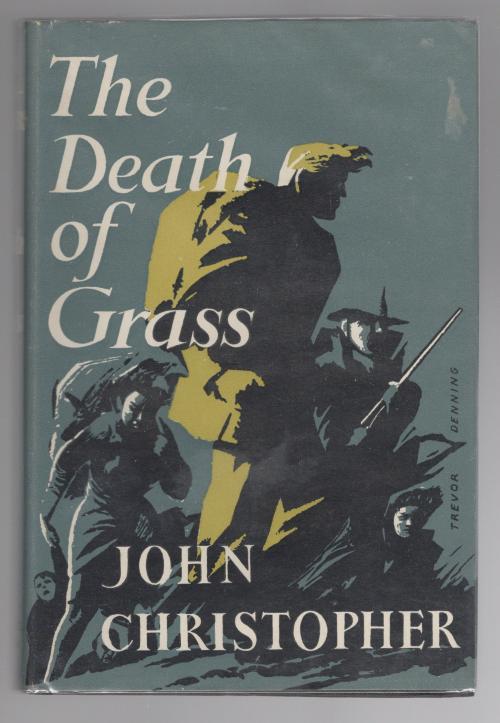

The lack of technology isn't really an issue either - after all if civilisation collapses we will be stuck with what we can use without mains electricity which except for the odd solar powered / battery powered device this pretty much rules out most modern tech. The book reads remarkably well after half a century, the authors voice does suggest the 1950's a little in parts but it's written in an uncomplicated, easy reading manner that manages to also be dramatic, gritty and (fairly) sensible. Thankfully it never descends to the depths of a McCathy novel and yet still remains a powerful tale that shows what people would do to survive, the lengths that people would take and how it would change them. It's easy to imagine how quickly we would lose our civility and resort to roving bands of hungry survivors and it's this journey into anarchy and survival that Youd highlights. More than 50 years after this calamity was first conceived we have lost none of our dependency on the plant. So without such a plant not only would we lose our grazing animals such as cows and sheep but rice and flour and anything that contains such ingredients. When grass is mentioned i'd imagine many of us Brits naturally visualise green rolling hills and such - forgetting that rice and barley and wheat also belong in that plant group.

It's also a sobering thought just how much we as a race rely on the grass plant family. There is no doubt that The Death of Grass was way ahead of it's time - drawing parallels with recent viral scares such as HPAI A(H5N1) which also originated in Asia - although luckily doesn't kill grass but does have the potential to become a pandemic. The book follows one family as they try and survive long enough to seek shelter and safety in a secluded farm growing potatoes and rearing pigs (pigs can survive on a diet of potatoes) half way across the country. The result is mass famine and the breakdown of civilisation, with Britain quickly dissolving into Anarchy. Only the Americas and Australasia remain unaffected due to rigorously enforced quarantines. The story (set in the UK) tells the tale of a virulent virus originating in China that kills any type of grass (including rice, wheat and barley) - which quickly spreads around the globe crossing Asia and infecting the whole of Europe. It was released in the US by the name "No Blade of Grass" under the fear that "Death of Grass" sounded too much like "something out of a gardening catalog" - which just goes to show how out of touch some people can be! The Death of Grass was Youd's second novel and was written in just a few short weeks, becoming a major success and ultimately liberating Youd from his day job. Written in 1956 - just as the post-apocalyptic genre started to gain ground, created by the British author Samuel Youd - under the pen name John Christopher. The Death of Grass is a classic post-apocalyptic tale of a world without grass.


 0 kommentar(er)
0 kommentar(er)
